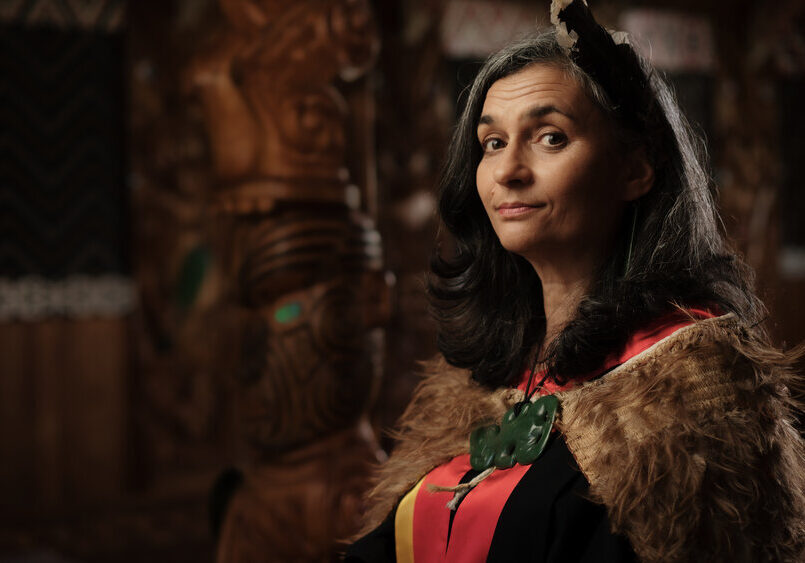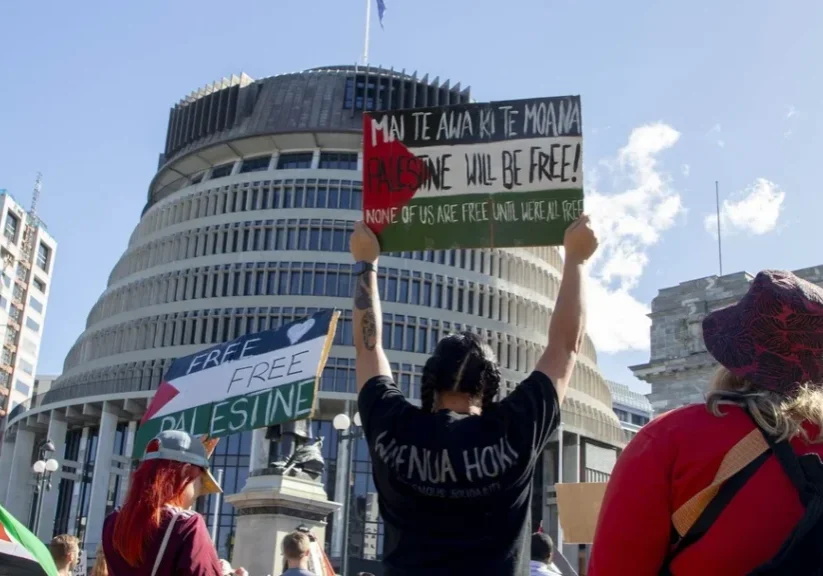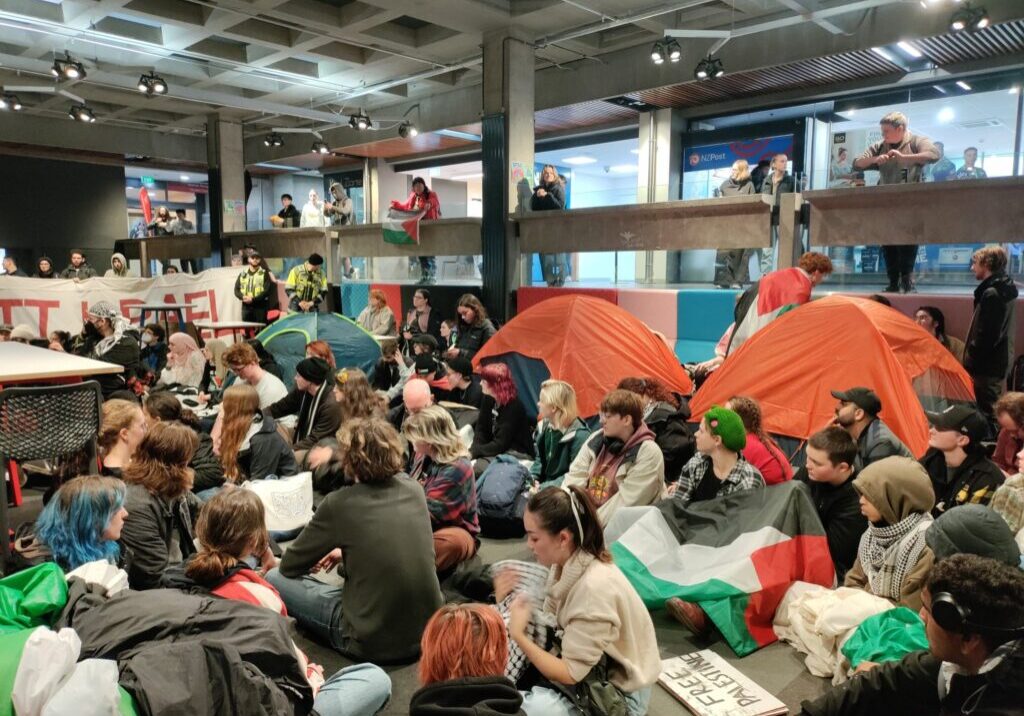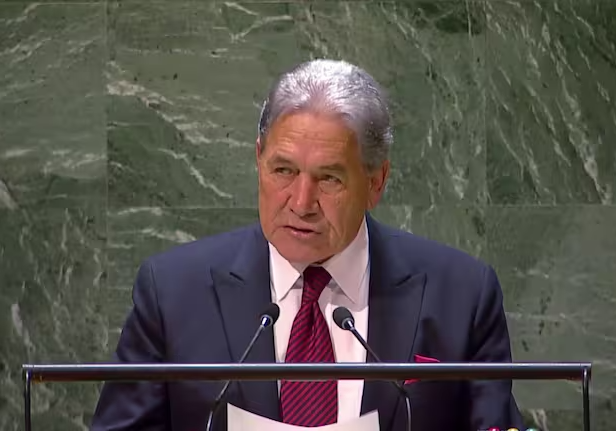Australia/Israel Review
AIR New Zealand: Key and the Kiwi Election
Nov 3, 2008 | Miriam Bell
By Miriam Bell
Wildly fluctuating polls, a donations scandal surrounding New Zealand First leader Winston Peters, dog toys in the shape of the Labour and National party leaders, and ACT party leader Rodney Hide’s fluorescent yellow jacket have been among the highlights of this year’s Kiwi election campaign.
Despite bookies, farmers and new age yuppies favouring the odds of a win by the opposition National party, at this stage such an outcome is far from certain. In fact, a recent spate of polls indicate that a coalition between Labour and a number of minority parties – notably the Green party – could be best-placed to form the next government.
Campaigning for the Nov. 8 election has been dominated by the state of the country’s economy, which is officially in recession, as well as various social issues perceived to be related to the country’s financial woes.
The members of New Zealand’s small Jewish community have differing views on the domestic issues which have dominated the campaign, but nonethless have a particular interest in following the fortunes of National party leader John Key. Key would become New Zealand’s third Jewish prime minister if the National party wins government.
The son of a Jewish refugee mother who fled Austria in 1939, Key told the Jerusalem Post in August he is “not a deeply religious person” but considered himself a member of the Jewish community.
Expressing a keen interest to travel to Israel, a country he has never visited, Key said New Zealand could learn a lot from its economic and hi-tech success.
If he is victorious, many community members hope a new Key-led government would herald a small but significant shift in the relationship between Jerusalem and Wellington – which has ranged from correct to rocky in recent years, particularly following a scandal involving two Israelis trying to obtain fake NZ passports in 2004.
Nonetheless, the fact remains that foreign affairs has barely received a mention over the course of this campaign.
Writing in the Interpreter, a Lowy Institute for International Policy blog, early in the campaign, academic expert Stuart McMillan said that foreign policy was unlikely to be a significant issue in the election – even though former foreign minister Winston Peters might be. These words have proved prophetic.
However, McMillan noted the Labour-led government has placed great emphasis on foreign policy and that even Peters has “achieved rather more than had been expected”, particularly in terms of building better relations with the US. He also added that, if New Zealand gets a National-led government post-election, “there is no likelihood that the anti-nuclear policies and legislation [a point of contention with the US] will be abandoned”.
Further emphasising the lack of apparent political value in stressing party differences on foreign affairs, Key told the International Herald Tribune that, should his party be elected, they would make no big changes to the country’s foreign and defence policies, and that the nuclear ban would remain. He said: “Foreign policy is owned by the people of New Zealand. They want some consistency.”
Key went on to say he believed the “initial obstacles” to a free trade agreement with the USA had been overcome, and that he would “redouble” New Zealand’s efforts to secure a pact. He added the National party would also continue the country’s commitment of troops to the war in Afghanistan, to aiding anti-terror surveillance in the Persian Gulf and would keep peacekeeping troops in places like East Timor and the Sinai.
Find the differences – if you can – with Labour’s long-stated foreign policy which, according to the party’s website, is based on the values of independence, peace, democracy, human rights, security and economic prosperity.
The website says the party believes that “we can do what is right for New Zealand and make the world a better place”, and that “we believe New Zealand can show leadership in the pursuit of peace through activities such as conflict resolution, peace keeping, nuclear disarmament and environmental negotiations”. The website also reiterates the party’s commitment to multilateralism and human rights, assisting the Pacific region, and international trade.
Meanwhile, an article in the Washington-based Foreign Policy magazine lists New Zealand’s as one of the world’s five ugliest recent elections. Author David Kenner said that, while Americans might have a hard time imagining that election campaigning could get any worse, voters in Nigeria, Russia, Austria, New Zealand and Taiwan would “attest that it definitely can”.
Kenner wrote that the main Kiwi offenders are Peters and “some clever internet hackers” who have been “innovative” in their “electronic mudslinging”. He also said “the prospect of a transfer of power has contributed to an uncharacteristically bitter campaign” and that “third-party politicians have been responsible for much of the campaign’s vitriol”.
New Zealand’s inclusion in this particular list would probably surprise most observers – given that the FBI recently foiled an assassination plot targeting US candidate Barack Obama and Zimbabwe also had an election in 2008. The listing perhaps indicates the campaign has been far more desperate and exciting than is usually the case in this laidback country. However, it also somewhat obscures the reality that whoever wins this election, changes in the foreign affairs arena are likely to be no more than matters of nuance.
Tags: Australasia, New Zealand






